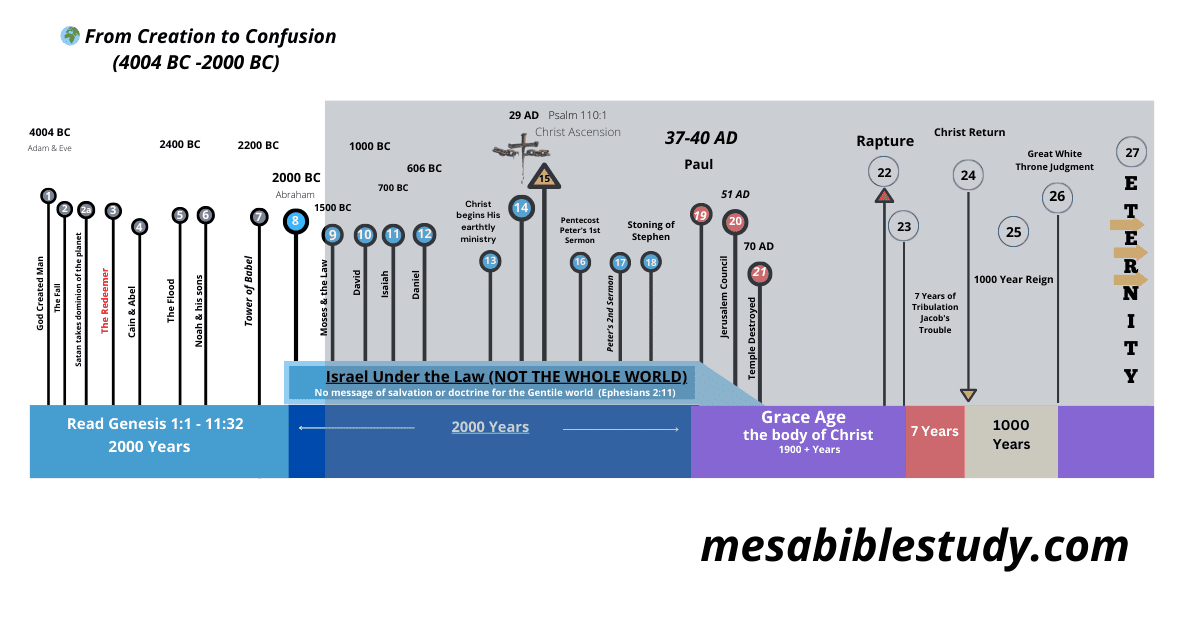📖 The Progressive Revelation in God’s Plan 🕰️
Understanding the Bible requires recognizing God’s sovereign hand in history. His unchanging character is our foundation, but His dealings with mankind have evolved throughout time. This is the essence of the Bible’s progressive revelation, revealing different dispensations of God’s plan at specific points in history.
Time Period: Genesis 1:1 to Genesis 11
The first two thousand years of biblical history (human history) are recorded in the first eleven books of the Bible. It is crucial to study these first eleven chapters, as they set the trajectory for God’s great plan of salvation for all mankind.
For the first 2000 years, all of mankind spoke one language, and God directly interacted with all mankind. There was no written law or prescribed instructions to worship God except that when a person sinned, they were to bring a blood sacrifice to God by faith, and their faith (plus works, bringing a blood sacrifice) would save them just like it saves us today. Basically, everything God instructed Cain and Abel to do was the format for all mankind for that time period (4004 BC–2000 BC).
Scripture is clear as to what mankind did with those instructions; they said thanks, but no thanks, God; we will do our own thing; and all mankind thought of all the time was evil. So God destroyed them with the flood except for Noah and his family (8 people) out of billions. Then, from the time Noah and his family left the Ark, another 200 years went by, and mankind was right back in full rebellion mode, doing their own thing and rebelling against God by refusing to fill the earth and populate the planet. So God forces mankind to scatter by confusing the languages.
📜 “Now the whole earth had one language and one speech.” (Genesis 11:1, NKJV)
God commanded mankind to scatter, and of course, mankind rebelled and said, No thank you, God, we will stay right here. So God came down and confused their languages, forcing them to scatter (Genesis 11:7-9).

0 Comments